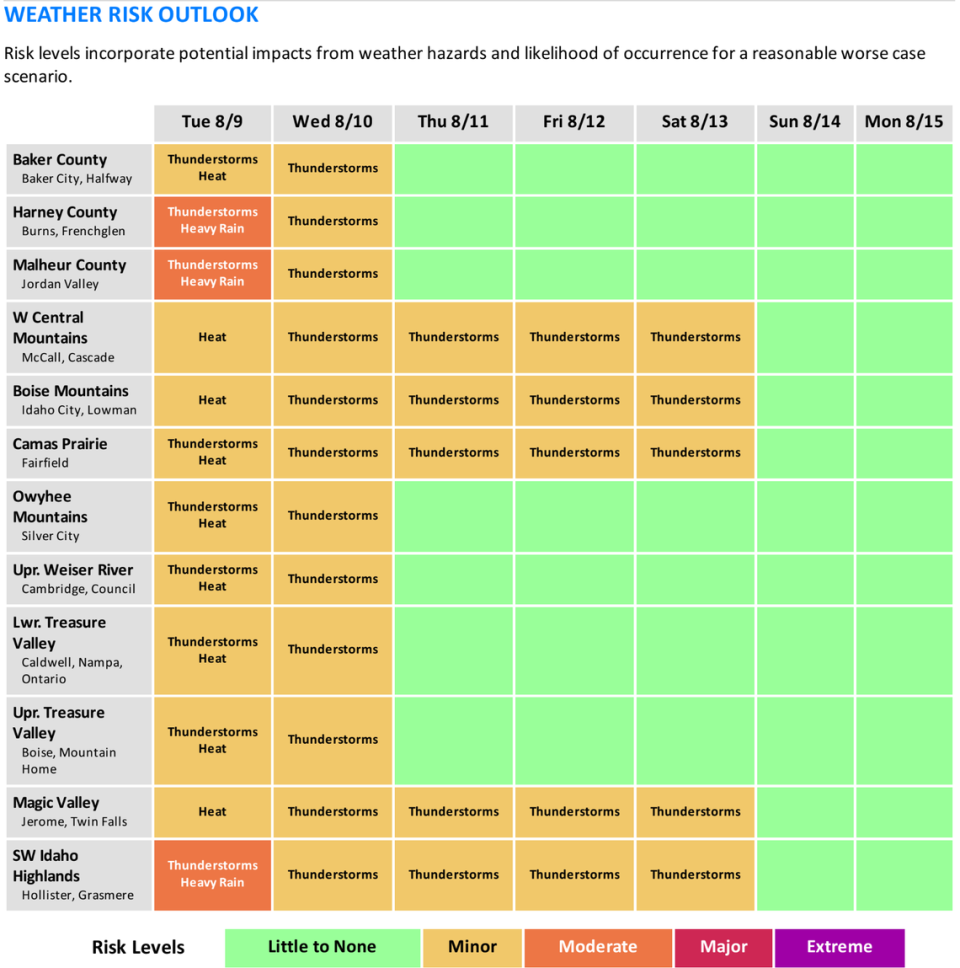‘Heavy rain’ still possible for Boise through Wednesday night. How much has fallen?
Boise residents woke up Wednesday to a sight they hadn’t witnessed in almost two months: substantial rainfall.
Monsoonal moisture brought cloudy skies and rainy weather to the Treasure Valley on Tuesday evening, and a steady trickle of rain has persisted over Boise and cities to the west since then.
The National Weather Service in Boise recorded 0.03 inches of rainfall at the Boise Airport by 11 a.m. Although that does not seem like much, it’s the first time the city has recorded more than 0.01 inches of precipitation since June 12, when thunderstorms dumped 0.79 inches of rain.
And chances are some rainfall will keep falling in the area throughout Wednesday.
“I would expect it to continue through later this evening, probably around 8 or 9 p.m,” National Weather Service meteorologist Sophia Adams told the Idaho Statesman on Wednesday morning. “Looks like it will mainly just be isolated rain showers and stray thunderstorms.”
The weather service was forecasting a 20% chance of isolated thunderstorms through the evening hours for Boise. Adams said there could be about 0.02 inches of more rain to fall, but if an isolated storm hit, it would drastically increase the total.
The precipitable water in the atmosphere — the amount of water vapor measured from the Earth’s surface to the top of the atmosphere — is about 1.5 inches, Adams said, which is unusually high for the area. This is a result of the monsoon moisture in the air, she said, and any thunderstorms would pick that up.
“If those thunderstorms do come through, there likely will be heavy rain,” Adams said. “But it’s hard to predict exactly.”

Perseid meteor shower
The Perseid meteor shower will peak on Thursday night into early Friday morning. The celestial event has been viewable throughout the Northern Hemisphere since July 14, but up to 75 meteors per hour can be seen during the peak on Thursday night.
The Weather Service is forecasting a cloudy night on Wednesday with little chance to go meteor spotting, but the skies above Boise should clear up on Thursday, with only a few clouds set to impede the nighttime spectacle.

